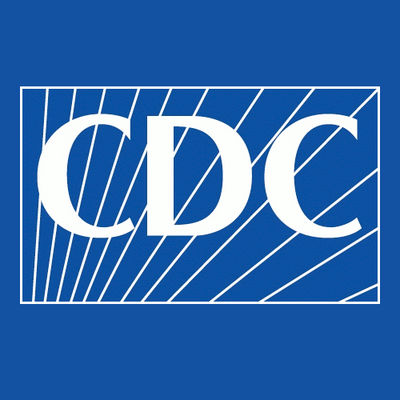预约演示
更新于:2025-07-31
Artesunate/Pyrimethamine/Sulfalene
青蒿琥酯/乙胺嘧啶/磺胺林
更新于:2025-07-31
概要
基本信息
药物类型 小分子化药 |
别名 AS/SP、Co-Arinate、Coarinate |
作用方式 抑制剂 |
作用机制 ATP2A1抑制剂(肌浆网/内质网钙ATP酶-1抑制剂)、DHFR抑制剂(二氢叶酸还原酶抑制剂)、DHPS抑制剂(二氢叶酸合成酶抑制剂) |
治疗领域 |
在研适应症 |
非在研机构- |
权益机构- |
最高研发阶段批准上市 |
首次获批日期- |
最高研发阶段(中国)- |
特殊审评- |
登录后查看时间轴
结构/序列
分子式C11H12N4O3S |
InChIKeyKXRZBTAEDBELFD-UHFFFAOYSA-N |
CAS号152-47-6 |
查看全部结构式(2)
关联
7
项与 青蒿琥酯/乙胺嘧啶/磺胺林 相关的临床试验NCT00510159
Randomized Double Blind Clinical Trial in Mali, Comparing the Effectiveness of Artesunate + Sulfamethoxypyrazine/Pyrimethamine Versus Praziquantel in the Treatment of S. Haematobium in Children
The purpose of this study is to evaluate the efficacy of praziquantel versus As+SMP (Co-Arinate FDC ®) in the treatment of Schistosoma haematobium in 6-15 year old Malian children. The nul-hypothesis in this study is that the combination of As+SMP is more effective than praziquantel in the treatment of S. haematobium infected children.
开始日期2007-08-01 |
申办/合作机构 |
NCT00484900
Open Randomized Multi-Centre Trial, Comparing Artesunate-Sulfamethoxypyrazine-Pyrimethamine FDC Over 3 Days, Artesunate-Sulfamethoxypyrazine-Pyrimethamine FDC Over 48 Hours and Artemether-Lumefantrine FDC Over 3 Days on P. Falciparum Malaria
The purpose of this open randomised multi-centre clinical trial is to test the hypothesis that three pills of the fixed dose combination artesunate/sulfamethoxypyrazine/pyrimethamine, administered over 24 hours is not inferior in efficacy to the same drug administered over 48 hours and that the fixed dose combination artesunate/sulfamethoxypyrazine/pyrimethamine As/SMP fdc, independently of the duration of its dose interval, is not inferior in efficacy to 6 - 24 pills (number of pills administered to respectively children and adults)of the 60 hours treatment of artemether/lumefantrine for the treatment of uncomplicated P. falciparum malaria.
开始日期2006-05-01 |
申办/合作机构 |
NCT00164255
Efficacy of Intermittent Sulfadoxine-Pyrimethamine and Sulfadoxine-Pyrimethamine + Artesunate Treatment in the Prevention of Malaria in Pregnancy in an Area With Chloroquine-Resistant Plasmodium Falciparum
This study is an investigation to compare the efficacy of two different intermittent sulfadoxine/pyrimethamine (SP) treatment regimens and intermittent sulfadoxine/pyrimethamine (SP) + artesunate (SP/AS) treatment of HIV negative and positive mothers in clearing placental parasitemia at delivery. If intermittent protective SP/AS treatment is equally efficacious and safe as intermittent protective SP, such a regimen could be adapted for programmatic use as a potentially more durable alternative to SP monotherapy in areas of increasing SP resistance.
开始日期2003-01-01 |
申办/合作机构 |
100 项与 青蒿琥酯/乙胺嘧啶/磺胺林 相关的临床结果
登录后查看更多信息
100 项与 青蒿琥酯/乙胺嘧啶/磺胺林 相关的转化医学
登录后查看更多信息
100 项与 青蒿琥酯/乙胺嘧啶/磺胺林 相关的专利(医药)
登录后查看更多信息
12
项与 青蒿琥酯/乙胺嘧啶/磺胺林 相关的文献(医药)2018-09-01·Infection, genetics and evolution : journal of molecular epidemiology and evolutionary genetics in infectious diseases3区 · 医学
Spatio-temporal distribution of PfMDR1 polymorphism among uncomplicated Plasmodium falciparum malaria cases along international border of north east India
3区 · 医学
Article
作者: Valecha, Neena ; Yadav, Chander Prakash ; Goomber, Shelly ; Anvikar, Anup ; Mishra, Neelima
PfMDR1 single nucleotide polymorphisms (SNP) are good correlate markers for antimalarial drug resistance worldwide. Present study is a comprehensive view of screening of PfMDR1 polymorphism to antimalarials practiced with geography and time. Study sites Mizoram, Tripura, Meghalaya chosen are at multivariate drug pressure due to cross border migration and transmission. Mizoram is gateway to south east Asia through Myanmar whereas Tripura, Meghalaya share porous border with Bangladesh. Baseline finger pricked blood stained filter paper for confirmed uncomplicated Plasmodium falciparum infected patients (year 2015) were obtained from National Institute of Malaria Research, New Delhi, India. PfMDR1 polymorphism for codon N86Y, Y184F, D1246Y was determined by PCR-RFLP, further confirmed by sequencing. There observed marked predominance of Plasmodium isolates with PfMDR1 wild type alleles for all codons under study i.e. 86, 184, 1246. Spatially, Plasmodium isolates from Mizoram were most diverse with co-existence of PfMDR1 genotype with NYD, YYD, NFD haplotypes, followed by Tripura. Isolates from Meghalaya were of all NYD haplotype. Reports, referring to screening of PfMDR1 SNPs to CQ/SP/AS-SP across India, were archived. Temporal study show distinct rise in proportion of PfMDR1 wild type N86 allele since introduction of Artemether-Lumefantrine as first line antimalarial. Hence spatio-temporal screening of Plasmodium population with PfMDR1 single nucleotide polymorphism accounts for its association with antimalarial susceptibility and validate PfMDR1 SNPs as antimalarial drug resistant marker.
2015-04-01·Infection, genetics and evolution : journal of molecular epidemiology and evolutionary genetics in infectious diseases3区 · 医学
High prevalence of pfdhfr–pfdhps triple mutations associated with anti-malarial drugs resistance in Plasmodium falciparum isolates seven years after the adoption of sulfadoxine–pyrimethamine in combination with artesunate as first-line treatment in Iran
3区 · 医学
Article
作者: Djadid, Navid Dinparast ; Raeisi, Ahmad ; Zakeri, Sedigheh ; Pirahmadi, Sakineh ; Rouhani, Maryam
The spread of anti-malarial drug resistance will challenge any malaria control and elimination strategies, and routine monitoring of resistance-associated molecular markers of commonly used anti-malarial drugs is very important. Therefore, in the present investigation, the extent of mutations/haplotypes in dhfr and dhps genes of Plasmodium falciparum isolates (n=72) was analyzed seven years after the introduction of sulfadoxine-pyrimethamine (SP) plus artesunate (AS) as first-line anti-malarial treatment in Iran using PCR-RFLP methods. The results showed that the majority of the patients (97.2%) carried both 59R and 108N mutations in pure form with wild-type genotype at positions N51 and I164. Additionally, a significant increase (P<0.05) was observed in the frequency of R59N108/G437 haplotype (79.2%) during 2012-2014. This raise was because of the significant increase (P<0.05) in the frequency of 437G mutation (81.9%), which more likely was due to more availability of SP as anti-malarial drug for treatment of falciparum patients in these malaria-endemic areas of Iran. However, no quintuple mutations associated with treatment failure were detected. In conclusion, the present results along with in vivo assays suggest that seven years after the adoption of SP-AS as the first-line treatment in Iran, this drug remains efficacious for treatment of uncomplicated falciparum malaria, as a partner drug with AS in these malaria-endemic areas.
2012-05-01·Antimicrobial agents and chemotherapy2区 · 医学
Comparative Efficacies of Artemisinin Combination Therapies in Plasmodium falciparum Malaria and Polymorphism of
pfATPase6
,
pfcrt
,
pfdhfr
, and
pfdhps
Genes in Tea Gardens of Jalpaiguri District, India
2区 · 医学
Article
作者: Saha, Pabitra ; Ganguly, Swagata ; Kundu, Pratip K. ; Bera, Dilip K. ; Das, Sonali ; Guha, Subhasish K. ; Maji, Ardhendu K. ; Biswas, Asit ; Chattopadhyay, Gaurangadeb ; Das, Madhusudan ; Ray, Krishnangshu ; Mullick, Shrabanee
ABSTRACT:
In India, chloroquine has been replaced by a combination of artesunate and sulfadoxine-pyrimethamine (AS-SP) for uncomplicated
P. falciparum
malaria. Other available combinations, artemether-lumefantrine (AM-LF) and artesunate-mefloquine (AS-MQ), not included in the national program, are widely used by private practitioners. Little is known about the therapeutic efficacy of these artemisinin combinations and the prevalence of molecular markers associated with antimalarial drug resistance. A total of 157 patients with
P. falciparum
monoinfection were recruited and randomized into three study groups (AS-SP, AM-LF, and AS-MQ). All patients were followed up for 42 days to study the clinical and parasitological responses according to the WHO protocol (2009). We assessed the polymorphism of the
pfATPase6
,
pfcrt
,
pfdhfr
, and
pfdhps
genes by the DNA-sequencing method. The PCR-corrected therapeutic efficacies of AS-SP, AM-LF, and AS-MQ were 90.6% (95% confidence interval [CI], 0.793 to 0.969), 95.9% (95% CI, 0.860 to 0.995), and 100% (95% CI, 0.927 to 1.00), respectively. No specific mutational pattern was observed in the
pfATPase6
gene. All isolates had a K76T mutation in the
pfcrt
gene. In the
pfdhfr-pfdhps
genotype, quadruple mutation was frequent, and quintuple mutation was documented in 6.3% of
P. falciparum
isolates. The significant failure rate of AS-SP (9.5%), although within the limit (10%) for drug policy change, was due to SP failure because of prevailing mutations in
pfdhfr
, I
51
R
59
N
108
, with
pfdhps
, G
437
and/or E
540
. The efficacy of this ACT needs periodic monitoring. Artemether-lumefantrine and artesunate-mefloquine are effective alternatives to the artesunate-sulfadoxine-pyrimethamine combination.
100 项与 青蒿琥酯/乙胺嘧啶/磺胺林 相关的药物交易
登录后查看更多信息
外链
| KEGG | Wiki | ATC | Drug Bank |
|---|---|---|---|
| - | - | - |
研发状态
批准上市
10 条最早获批的记录, 后查看更多信息
登录
| 适应症 | 国家/地区 | 公司 | 日期 |
|---|---|---|---|
| 疟疾 | - | - |
未上市
10 条进展最快的记录, 后查看更多信息
登录
| 适应症 | 最高研发状态 | 国家/地区 | 公司 | 日期 |
|---|---|---|---|---|
| 埃及血吸虫病 | 临床3期 | 马里 | 2007-08-01 | |
| 恶性疟 | 临床3期 | 喀麦隆 | 2006-05-01 | |
| 恶性疟 | 临床3期 | 马里 | 2006-05-01 | |
| 恶性疟 | 临床3期 | 卢旺达 | 2006-05-01 | |
| 恶性疟 | 临床3期 | 苏丹 | 2006-05-01 |
登录后查看更多信息
临床结果
临床结果
适应症
分期
评价
查看全部结果
| 研究 | 分期 | 人群特征 | 评价人数 | 分组 | 结果 | 评价 | 发布日期 |
|---|
No Data | |||||||
登录后查看更多信息
转化医学
使用我们的转化医学数据加速您的研究。
登录
或

药物交易
使用我们的药物交易数据加速您的研究。
登录
或

核心专利
使用我们的核心专利数据促进您的研究。
登录
或

临床分析
紧跟全球注册中心的最新临床试验。
登录
或

批准
利用最新的监管批准信息加速您的研究。
登录
或

特殊审评
只需点击几下即可了解关键药物信息。
登录
或

Eureka LS:
全新生物医药AI Agent 覆盖科研全链路,让突破性发现快人一步
立即开始免费试用!
智慧芽新药情报库是智慧芽专为生命科学人士构建的基于AI的创新药情报平台,助您全方位提升您的研发与决策效率。
立即开始数据试用!
智慧芽新药库数据也通过智慧芽数据服务平台,以API或者数据包形式对外开放,助您更加充分利用智慧芽新药情报信息。
生物序列数据库
生物药研发创新
免费使用
化学结构数据库
小分子化药研发创新
免费使用

